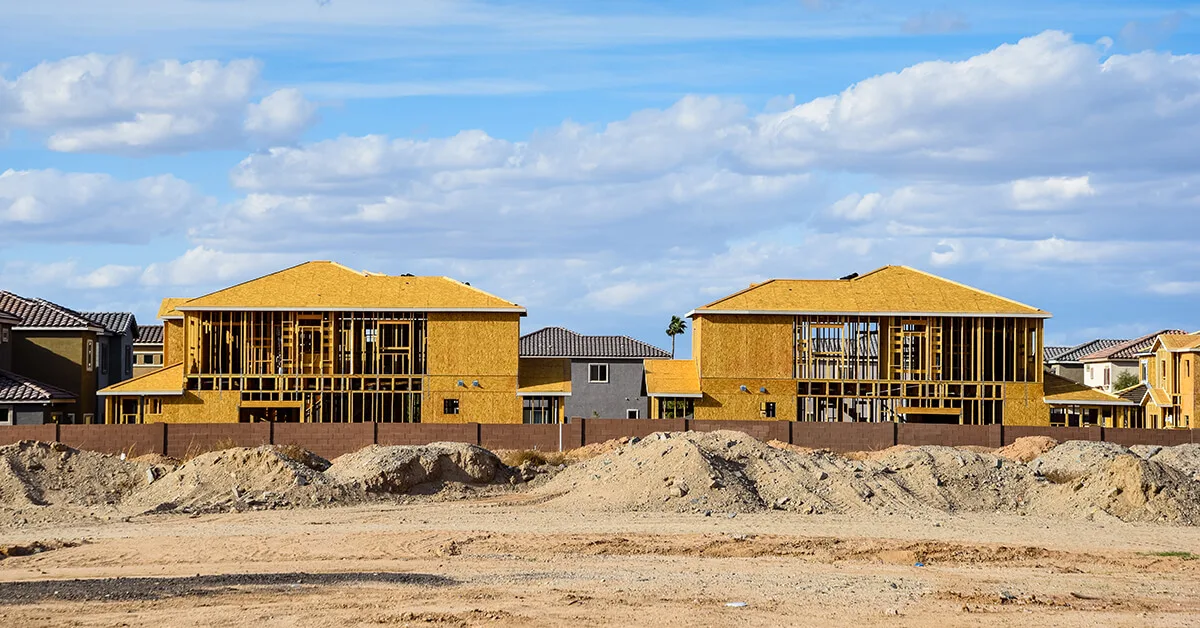
Gregory E. Clifford/ShutterStock
Advocates say the proposed funding structure setup has been done in other large US cities, but it’s the first of its kind in Arizona.
Tempe Mayor Corey Woods is pushing for the city to adopt a new affordable housing initiative that would bring more workforce housing to Tempe.
Woods’ initiative, called Hometown for All, would divert half of the permitting fees for every new development project in the city from the General Fund to the Tempe Coalition of Affordable Housing.
The money would then be used to buy and remodel properties or to purchase land and have developers build affordable units. These homes would be available to people who qualify under US Department of Housing and Urban Development low-income levels—for example, individuals making $43,600 or less, or a family of four making $62,250.
The Council will vote on the plan Jan. 14.
“As a longtime affordable housing advocate, I am determined to achieve a guaranteed pace of growth for our affordable and workforce housing stock,” Woods said in a press release. “We need to take action to prioritize a sustainable revenue source that we, the city, can control.”
Gaining Support
Patrick McNamara, senior program officer at the Local Initiatives Support Corporation in Phoenix, said he is “very much in favor” of the idea.
“Mayor Woods’ plan … is to find a way to help finance housing in Tempe for everyone,” McNamara told The Copper Courier, “not just those that can afford expensive rents.”
Joanna Carr, policy and research director of the Arizona Housing Coalition, said it’s good to see Tempe approach the issue with innovation.
“This is exactly what municipalities need to tackle affordable housing issues in their local area,” she said.
Both McNamara and Carr said this funding structure has been set up in other large US cities, but it’s the first of its kind they know of in the state.
“It’s groundbreaking for the state of Arizona,” McNamara said. “As far as I can tell, it’s the first time that a municipality is using their own dollars to support new affordable housing.”
Out-of-Reach Rents
Arizona was ranked the third-worst state for affordable housing last year. The National Low Income Housing Coalition (NLIHC) report found that the state had only 26 affordable and available rental homes for every 100 “extremely low-income renter households.”
The state’s minimum wage is $12 per hour. According to the NLIHC, a worker would have to put in 57 hours per week at that pay rate to be able to afford a one-bedroom rental home in the state.
The coalition says an affordable monthly rent payment for an Arizona minimum wage worker would be $624. According to rental search website RentCafe, the average rent for a Tempe apartment is $1,464.
McNamara said increasing demand for Tempe housing driven by development around Tempe Town Lake and Arizona State University is leading to the construction of expensive properties, and there’s only so much space to go around.
“It’s difficult for the city of Tempe because they are landlocked,” McNamara said. “It’s not like Gilbert or Chandler where you can just find some green land somewhere, or pristine desert, and build on it.”
Oftentimes people move to those surrounding cities to find a less costly home.
“It’s very difficult for a young family to start in Tempe,” McNamara said, “which means they’re moving somewhere else, and the likelihood of them moving back isn’t great.”
COVID Difficulties
Carr said the affordable housing situation around the state was already “very bad,” and the pandemic has only made things worse.
“Even prior to this year, we were experiencing a huge shortage of affordable housing and that was obviously having an impact on rising eviction rates and homelessness,” she said. “And then all of these issues have been highly exacerbated by COVID-19.”
According to Princeton University’s Eviction Lab, Arizona’s eviction rate was 3.92% in 2016—the most recent data available. That was above the US average of 2.34%.
Now, with the job loss, health problems, and childcare needs that have arisen due to the virus, many families are facing eviction.
The Aspen Institute estimates up to 771,000 Arizonans are at risk of eviction in January, after the US Centers for Disease Control and Prevention moratorium expires at the end of the year.
And cities are feeling the financial impacts as well. McNamara pointed out that many are experiencing severe revenue shortfalls due to the loss of taxes from restaurants, tourism, and more.
“This is a tough year for cities,” he said, “which makes this [Tempe initiative] even more aggressive.”
Piece of Puzzle
Carr said she is glad to see that Tempe’s initiative is just part of a wider plan to tackle affordable housing in the city.
She said other aspects of the issue that need to be addressed include land use reform, innovative housing options like tiny homes, and stigma surrounding low-income housing.
Carr added that state funding for affordable housing has been depleted since the Great Recession.
“There just haven’t been enough funds at the state level to support the development at the extent of what is needed,” she said.
That’s why she would like to see more Arizona municipalities follow Tempe’s lead in putting some of its own money into the fight.
“The way that Tempe has made affordable housing a key priority at the local municipality level and has been open to explore innovative solutions is really critical to increasing the supply of affordable housing,” Carr said.
Support Our Cause
Thank you for taking the time to read our work. Before you go, we hope you'll consider supporting our values-driven journalism, which has always strived to make clear what's really at stake for Arizonans and our future.
Since day one, our goal here at The Copper Courier has always been to empower people across the state with fact-based news and information. We believe that when people are armed with knowledge about what's happening in their local, state, and federal governments—including who is working on their behalf and who is actively trying to block efforts aimed at improving the daily lives of Arizona families—they will be inspired to become civically engaged.


He said what? 10 things to know about RFK Jr.
The Kennedy family has long been considered “Democratic royalty.” But Robert F. Kennedy, Jr.—son of Robert F. Kennedy, who was assassinated while...

Here’s everything you need to know about this month’s Mercury retrograde
Does everything in your life feel a little more chaotic than usual? Or do you feel like misunderstandings are cropping up more frequently than they...

Arizona expects to be back at the center of election attacks. Its officials are going on offense
Republican Richer and Democrat Fontes are taking more aggressive steps than ever to rebuild trust with voters, knock down disinformation, and...

George Santos’ former treasurer running attack ads in Arizona with Dem-sounding PAC name
An unregistered, Republican-run political action committee from Texas with a deceptively Democratic name and ties to disgraced US Rep. George Santos...





